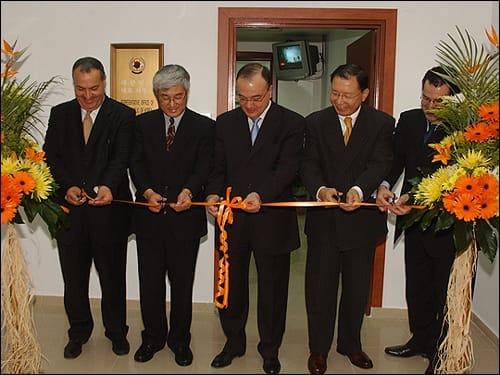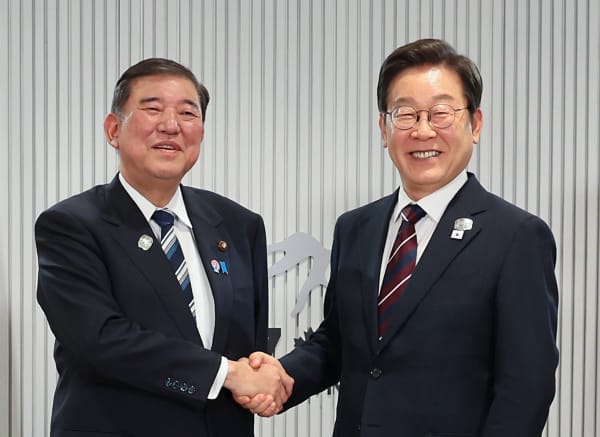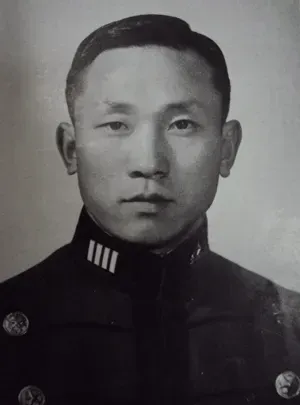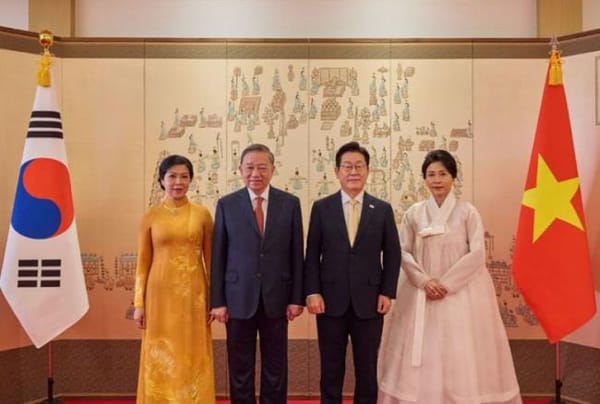Photo: President Moon Jae-in and First Lady Kim Jeong-suk cast their early ballots in the 2018 Local Elections. Credit: Website of the Office of the President.
An indispensable component of South Korea’s long march toward democracy is the struggle to firmly establish the right to vote. Nominally, the Republic of Korea was established in 1948 as a democracy with the United States as a patron, to serve as an instructive contrast to North Korea’s communist dictatorship led by Kim Il Sung 김일성. In practice, however, elections in South Korea were heavily rigged in favor of the authoritarian leaders who held power with the US government’s blessing.
The first noteworthy, mass-scale election rigging in modern South Korean history is the March 15 Elections Rigging 3.15 부정선거. In the 1960 presidential election, Syngman Rhee 이승만’s Liberty Party 자유당 engaged in wide-ranging fraud including massive numbers of fake ballots, police intimidation at the polling stations, and hired goons beating and killing the opposition party officials, in an attempt to secure Rhee’s fourth presidential term. Rhee won the rigged election, but the outrage following such a blatant fraud evolved into the April 19 Movement 4.19 운동, a series of nationwide protests that led to Rhee’s fall and exile. But South Korea’s liberal moment in 1960 barely lasted a year, as General Park Chung-hee 박정희 staged a military coup on May 16, 1961 and overthrew the democratically elected government led by Prime Minister Jang Myeon 장면.
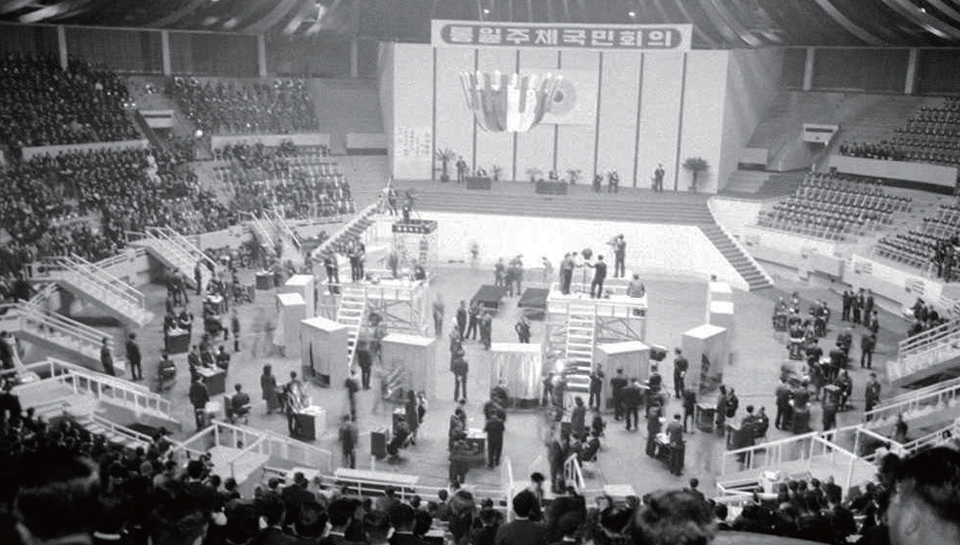
Photo: the 1972 South Korean presidential election, voted by an "electoral college" who met at a sports arena to ensure the election of dictator Park Chung-hee. Credit: the National Archives of the Republic of Korea.
For two years, Park claimed to be the acting president while leading the military junta, until his government resumed elections in 1963. To prevail in the resumed elections, Park engaged in his own election rigging, which reached a new height during the “Yushin” 유신 period from 1972 to 1979. The new Yushin Constitution 유신헌법 established the National Council for Unification Initiative 통일주체국민회의, an “electoral college” that functionally acted as a way to ensure the military dictator winning every election. This authoritarian system of indirect elections continued through the Chun Doo-hwan 전두환 dictatorship that followed Park’s assassination in 1979, and was finally abolished in 1987 as South Korea transitioned into democracy. (Because the National Council selected the president in a mass vote held at a sports arena, a rigged election in Korea is sometimes referred as a “gymnasium election” 체육관 선거.)
To this day, South Korea’s elections are run based on the constitutional revisions made in 1987, commonly known as the Sixth Republic Constitution 제6공화국 헌법. The National Elections Commission 중앙선거관리위원회 manages all elections for any public office in Korea. The NEC is a constitutional institution, existing independently and outside of the three branches of the government. (In other words, it is not possible for the executive branch official to be involved in any type of elections management, unlike the way secretaries of state in US states manage voter rolls.) The NEC is made up of nine commissioners who serve a term of six years. The president 대통령, the National Assembly 국회, and the Chief Justice of the Supreme Court 대법원 each select three NEC commissioners, who may not join a political party or conduct any political activity. The NEC manages all aspects of public elections, including regulation of opinion polls and elections-related media coverage.
There is no separate process of voter registration in South Korea, as all citizens are registered at birth and automatically given franchise at age 18. Election day is a national holiday. Because the memory of military dictatorship is fresh in the minds of many South Koreans, turnout tends to be high: the turnout for the first democratic presidential election in 1987 was 89.2%, and the turnout for the most recent presidential election in 2017 was 77.2%. (By comparison, turnout for the 2020 US presidential election - the highest since 1900 - was 66.3%.)
Vote by mail is not available save limited exceptions such as conscripted soldiers or prison inmates, as mail-voting was among the favorite rigging devices for South Korea’s dictators. Instead, Korea makes early voting widely available: those who wish to vote early may vote over a two-day period, five days before the election. Importantly, early voters may vote in any polling station in the country, not simply in the district of their residence. (Because election day is a holiday, many voters cast their ballot at the airport just before they board a flight to their vacation.) Early voting is highly popular: in the April 2020 legislature elections, 26.7% of voters cast their ballots early.



